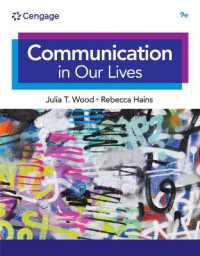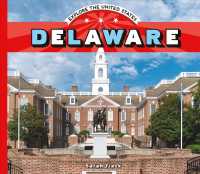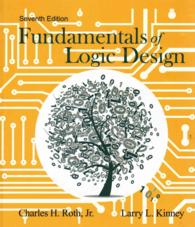- ホーム
- > 洋書
- > 英文書
- > Literary Criticism
Full Description
Paul Cefalu's study explores the relationship between moral character and religious conversion in the poetry and prose of Sidney, Spenser, Donne, Herbert, and Milton, as well as in early modern English Conformist and Puritan sermons, theological tracts, and philosophical treatises. Cefalu argues that early modern Protestant theologians were often unable to incorporate a coherent theory of practical morality into the order of salvation. Cefalu draws on fresh historicist theories of ideology and subversion, but takes issue with historicist tendency to conflate generic and categorical distinctions among texts. He argues that imaginative literature, by virtue of its tendency to place characters in approximately real ethical quandaries, uniquely points out the inability of early modern English Protestant theology to merge religious theory and ethical practice. This study should appeal not only to literary critics and historians, but also to scholars interested in the history of moral theory.
Contents
Acknowledgements; Introduction: English Protestant moral theory and regeneration; 1. Guilt, shame, and moral character in early modern English theology and Sir Philip Sidney's Countess of Pembroke's Arcadia; 2. The three orders of nature, grace, and law in Edmund Spenser's The Faerie Queene, Book II; 3. Conformist and puritan moral theory: from Richard Hooker's natural law theory to Richard Sibbes's ethical occasion; 4. The elect body in pain: Godly fear and sanctification in John Donne's poetry and prose; 5. Absent neighbors in George Herbert's 'The Church', or why Agape becomes Caritas in English Protestant devotional poetry; 6. Moral pragmatism in the theology of John Milton and his contemporaries; Epilogue: theorizing early modern moral selfhood; Notes; Index.








